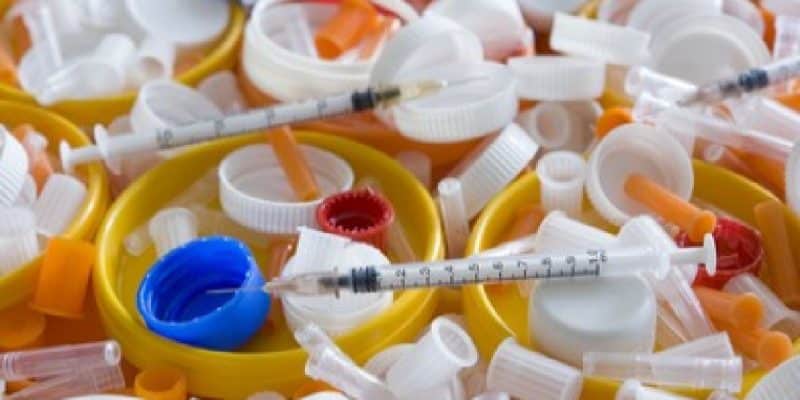The Mauritian authorities have announced the forthcoming construction of a medical waste treatment plant. The unit will be built in partnership with the United Nations Development Programme (UNDP).
A new plant will improve medical waste management in Mauritius by 2027. The project was announced recently following the signing of a Memorandum of Understanding between the United Nations Development Programme (UNDP) and the Mauritian Ministry of Environment, Waste Management and Climate Change.
The two partners will work together, in particular to carry out the feasibility study for the Mauritius Health Care Waste Treatment Project. An environmental and social impact assessment is also planned, as well as the development of a project management plan.
Medical waste treatment in Mauritius
The studies will determine the exact timetable for the launch of the medical waste treatment plant. The Mauritian Ministry of the Environment and UNDP will provide technical assistance for this part of the project. The initiative also includes the development of policies and regulations to ensure the long-term sustainability of the medical waste treatment plant, as well as the training of health care facility staff in improved waste management practices. This will include identifying different types of waste, sorting and storage methods.
The Global Environment Facility (GEF) will fund the work through a US$4.05 million grant. “The Mauritian Ministry of Health will also support the project with 925,000 dollars, in the form of an in-kind and cash contribution,” said Kailesh Jagutpal, the Mauritian Minister of Health, before indicating that the construction of the future medical waste treatment plant is part of the Low and Non-chemical Development in Small Island Developing States (ISLANDS) project.
With an overall cost of US$515 million, the ISLANDS project has been underway since 7 June 2022. The UNDP-GEF initiative aims to support 33 Small Island Developing States (SIDS) in the management of marine litter and hazardous chemicals and wastes. The project will also prevent the release of 23,000 metric tons of toxic chemicals and over 185,000 metric tons of marine litter into the world by 2027.
Inès Magoum






